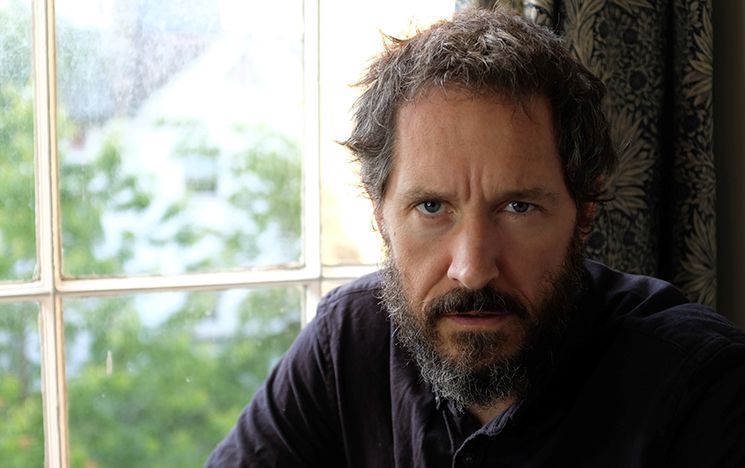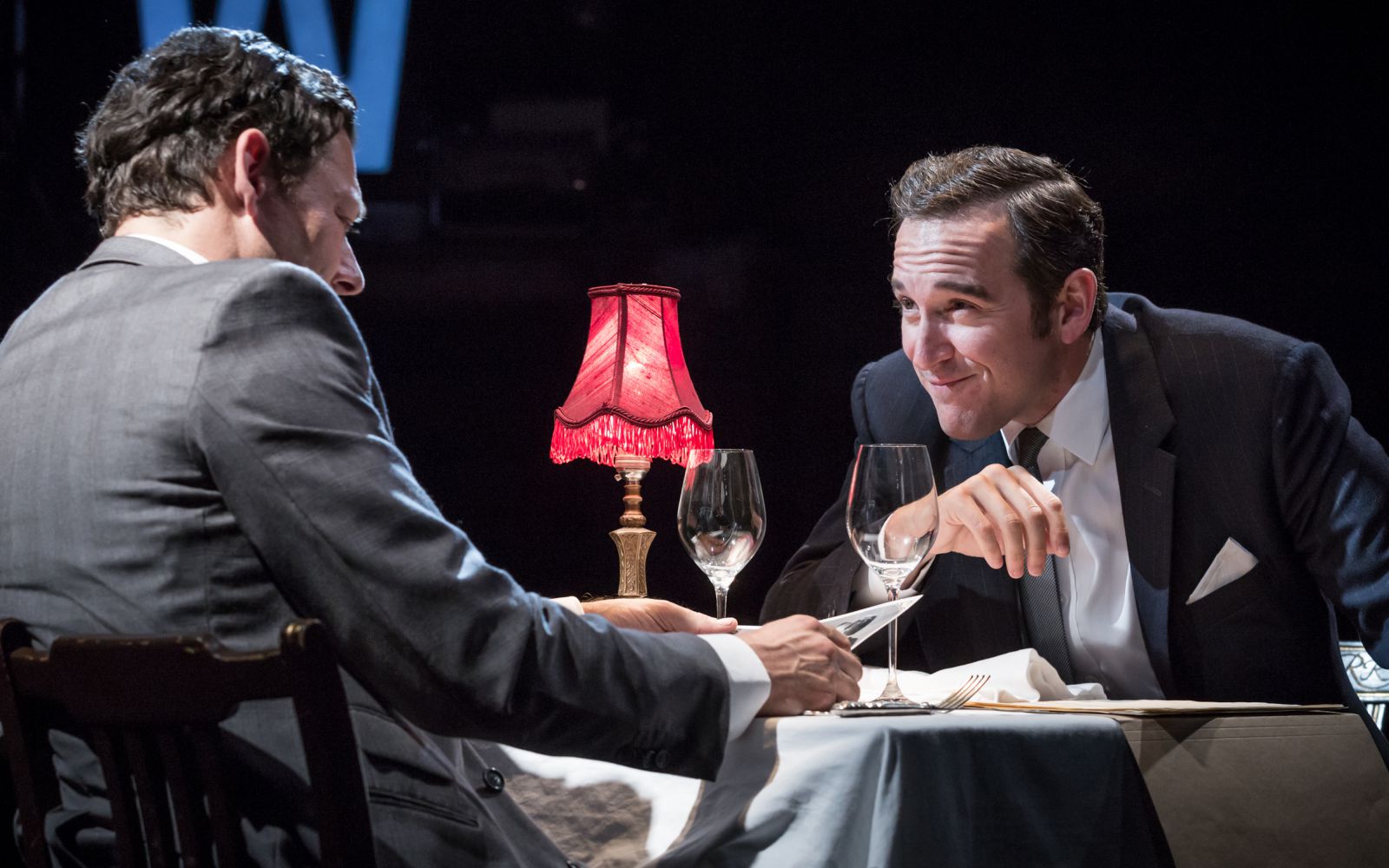Acting Up
Award-winning actor Bertie Carvel (English 1996) is known for hugely varied stage and screen roles, including bullying headmistress Miss Trunchbull in Matilda, media mogul Rupert Murdoch in Ink and a cheating husband in Dr Foster. Here, he lifts the curtain on his career and reveals the part played by his time at Sussex.

The simple truth is that the baddies are the best parts. What excites me about [a new] character is complexity, depth and richness, but also variety. In any part, you have to ask yourself, “What would it feel like to be going through this?”
I don’t have a favourite part – I’m proud of them all. I get very consumed by whatever I’m doing at any given time. Afterwards, once it’s done, because of the intensity of that involvement and the obsessive attention to detail, you have to kind of let things go.
For me, the enjoyment of acting really is to get to try on different sets of clothes, role-play different situations and emotions, some of which feel very close, some of which might feel further away, but all of which are connected by our common humanity and experience. I like getting in the dressing-up box and I like finding out who I am in a different set of trousers.
When playing real people, there’s a greater sense of duty to do your research properly. But you can be pinioned, bound and restricted by that research, and you have to liberate your imagination and think, “Well, why are we making a play of this and not simply watching a documentary?” Drama and fiction and imaginative endeavour can reveal something that journalism can’t – and vice versa.
My dad is a good journalist and believes in reporting on the truth. And in a way, I suppose I approach acting a bit like journalism – you start with the facts, present the character without judgement and then allow your audience to make up their own minds. [It] doesn’t mean that you don’t have a view but that you are there to empower your audience.
In Parade I played a man convicted of murder. So, there’s also this real duty to the person, because you are dealing with a question of innocence or guilt. He certainly had a very unfair trial, but may have been a murderer – we’ll never know. The key to me was to investigate the elements of his character that made him seem guilty or innocent, likeable or unlikeable, without judging him either way.
All through my teenage years, my hobby was live role-playing. Every weekend I would go to Chislehurst Caves with my mates. We all agreed ‘rules’: “In this space we are going to be who we say we are for a weekend. You can call yourself Jonas the Warrior, and we’ll believe that you are a brilliant swordsman.”
I was young for my year when I started at Sussex and it was challenging. It took me right up to the end of my degree to kind of crack it. I just remember that sensation of finally getting it, and thinking, “Oh, I can do this.” You know, “I have to work hard, and I have to know what I’m trying to say, but I also just need to allow myself to have flair.” Before, I was trying to write good essays, but it was so obvious I didn’t know what I was talking about. I’d arrived at a place where people were professionally writing about this stuff. I think I felt kind of crushed by that early on.
I think what I really learned at Sussex was independent thought and to think particularly critically. It was a profound experience to take those instincts that I already had but were really sharpened at Sussex, to do it independently and to challenge yourself, to not accept the orthodoxy lying down.
 Bertie Carvel in his award-winning portrayal of Rupert Murdoch in Ink.
Bertie Carvel in his award-winning portrayal of Rupert Murdoch in Ink.In the spring term of my second year, my mother had a stroke and it really knocked me sideways. I’m forever grateful for the pastoral care at Sussex and for being allowed to take time out. I was in a real spin and they gave me a chance to come back and complete the following year.
I discovered acting while I was at Sussex. When I came back from intermitting, I had this confidence – I’d cut my long hair for the first time in 10 years and was doing lots of Kung Fu. I thought, “I’m going to go and take up some new interests,” and signed up for an audition for Murder in the Cathedral.
Doing that play, I realised I’d found a vocation. It was like falling off a horse. I knew how to do it because I’d been doing it all these years [with role-playing] without thinking that that was what I was doing. By the end of my time at Sussex, I was in SUDS (Sussex University Drama Society) and doing all the plays, but I still had an awful lot to learn and I’m really pleased I had the opportunity to go on to RADA for three years.
I haven’t been an overnight success, but I’ve been very fortunate. I’ve had a really consistent career and done lots of good work that I’m really proud of. Awards are very flattering but it’s the work that counts.
I have some fairly way-out ideas: that feeling of invention and inspiration, and slightly slapdash outsider art, really thrills. In Rope, there was a wonderful page-long characterisation for my character, Rupert Cadell, which described him as lame in one leg and holding his head and body perfectly still as if articulation causes him some definite physical pain that he is trying to circumvent. So, I decided he had a wooden leg, his real one shot off in the war, and I built this kind of leg contraption.
The director looked at me as if to say, “What the f*** are you putting to me? You want a wooden leg?” Then says, “Okay. Let’s try it.” Then you do it, and he nods – it’s good, and nobody knew it was good before you tried it. I love those moments. Good acting very often comes out of taking risks.
Activism and contributing towards a fairer society are important to me. Serving on Equity’s council and subcommittees, I do my best to ask uncomfortable questions of those in power. Theatre is facing an existential crisis post-Covid and we need radical strategic intervention from government if our cultural powerhouse is to remain standing.
I am really excited about being a dad. I feel my life pivoting around this moment, from losing my mother last year and then becoming a parent myself. It has put a lot of things into perspective. My mother always told me that I could do anything I set my mind to. I don’t know if that’s true, but to be told that consistently is the most incredible gift. I couldn’t want for more loving, more supportive parents. I’ll try and be that.